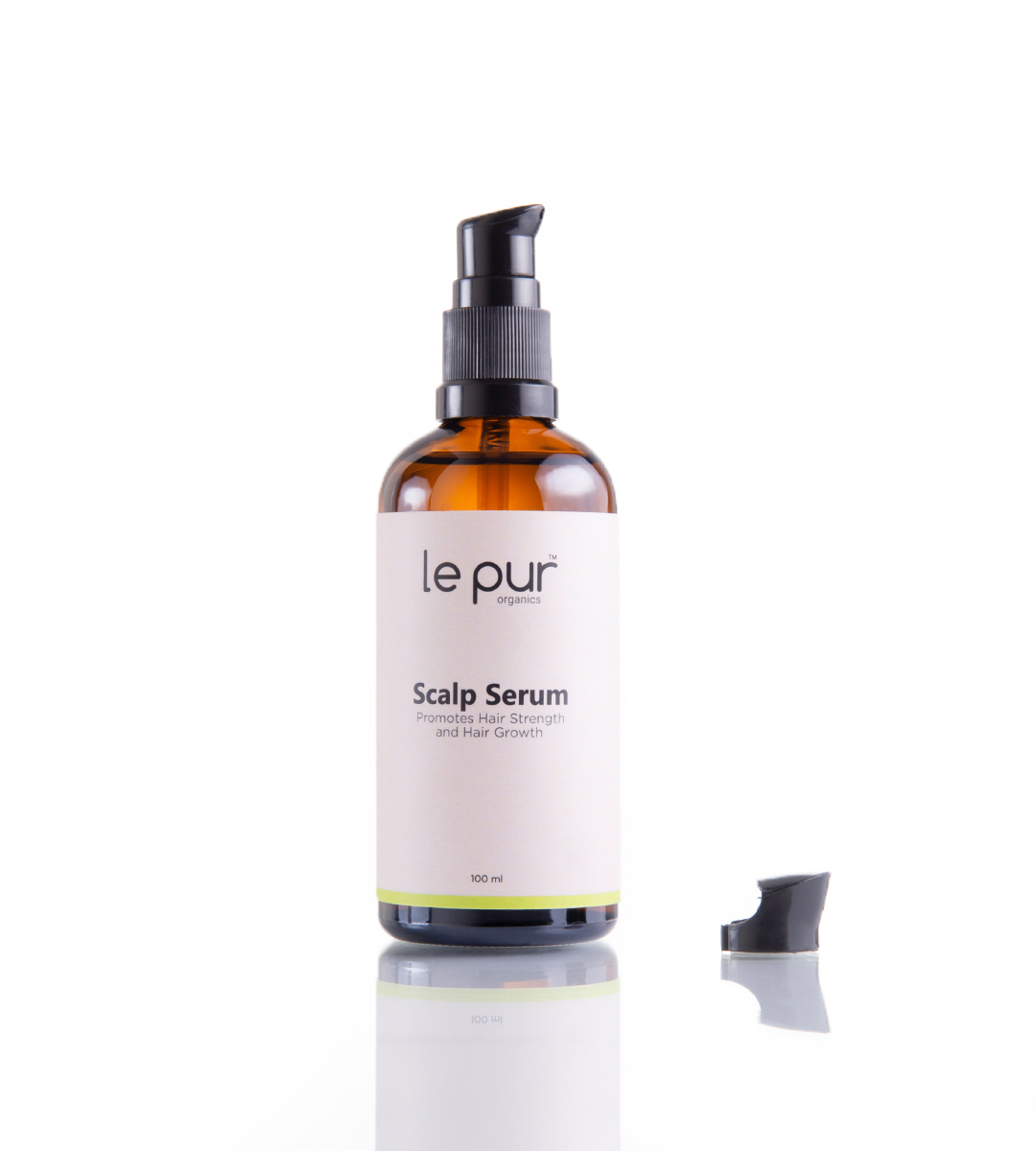Hair loss and thinning hair are common concerns that affect millions of people worldwide, leading many to seek effective solutions. Among the myriad of treatments available, scalp serums have gained significant popularity. But can scalp serum truly promote hair growth? To answer this question, it is essential to understand the composition of scalp serums, the science behind hair growth, and the clinical evidence supporting the use of these products.
Understanding Scalp Serums
Scalp serums are topical treatments designed to be applied directly to the scalp. They typically contain a blend of active ingredients aimed at nourishing the scalp, improving hair follicle health, and promoting an optimal environment for hair growth. Common ingredients found in scalp serums include:
- Vitamins and Minerals: Vitamins such as biotin (Vitamin B7), Vitamin E, and Vitamin D, along with minerals like zinc and magnesium, are crucial for maintaining healthy hair and scalp.
- Botanical Extracts: Plant-based ingredients like saw palmetto, ginseng, and green tea extract are believed to have beneficial effects on hair health.
- Peptides: Peptides are short chains of amino acids that can stimulate collagen production and strengthen hair.
- Essential Oils: Oils such as peppermint, rosemary, and tea tree oil can improve blood circulation to the scalp and have antimicrobial properties.
- Growth Factors: Some advanced formulations include growth factors and cytokines that can stimulate hair follicle activity.
The Science Behind Hair Growth
Hair growth occurs in cycles, consisting of three main phases: anagen (growth phase), catagen (transitional phase), and telogen (resting phase). The anagen phase is when hair follicles are actively producing hair, and it can last several years. The length and health of the anagen phase largely determine hair density and length.
Various factors can disrupt this cycle, leading to hair thinning or loss. These include genetic predisposition, hormonal imbalances, nutritional deficiencies, stress, and environmental damage. Effective hair growth treatments aim to prolong the anagen phase, reduce hair follicle miniaturization, and improve overall scalp health.
How Scalp Serums Work
Scalp serum targets multiple aspects of hair and scalp health to promote hair growth:
1. Nourishment: Ingredients like vitamins, minerals, and peptides provide essential nutrients to the scalp and hair follicles, ensuring they function optimally.
2. Improved Circulation: Essential oils and other compounds can increase blood flow to the scalp, delivering more oxygen and nutrients to hair follicles.
3. DHT Reduction: Some serums contain ingredients that inhibit dihydrotestosterone (DHT), a hormone linked to androgenetic alopecia (pattern hair loss). Saw palmetto and green tea extract, for example, are known to reduce DHT levels.
4. Anti-inflammatory Properties: Inflammation can damage hair follicles and impede hair growth. Ingredients like tea tree oil and aloe vera have anti-inflammatory properties that can soothe the scalp.
5. Hydration: A well-hydrated scalp is crucial for maintaining healthy hair follicles. Ingredients such as hyaluronic acid can provide moisture and prevent dryness and flakiness.
6. Stimulation of Hair Follicles: Growth factors and peptides can directly stimulate hair follicle cells, encouraging them to enter the anagen phase and produce new hair.
Clinical Evidence and Effectiveness
The effectiveness of scalp serums can vary based on their formulation and the individual’s underlying causes of hair loss. Scientific studies and clinical trials provide some insight into the potential benefits of these products:
- Biotin: While biotin is commonly included in hair growth products, its efficacy is primarily noted in individuals with biotin deficiency. For others, the benefits may be less pronounced.
- Saw Palmetto: Research suggests that saw palmetto can inhibit 5-alpha-reductase, an enzyme that converts testosterone to DHT. Some studies have shown that topical application can reduce hair loss and improve hair density.
- Peppermint Oil: A study published in “Toxicological Research” demonstrated that peppermint oil significantly increased dermal thickness, follicle number, and follicle depth, promoting hair growth in mice.
- Growth Factors and Peptides: There is promising evidence that growth factors like EGF (epidermal growth factor) can stimulate hair follicle proliferation. However, more extensive human trials are needed.
Considerations and Potential Side Effects
While scalp serums can be beneficial, it is essential to consider potential side effects and limitations:
- Skin Sensitivity: Some individuals may experience irritation or allergic reactions to certain ingredients, such as essential oils or synthetic compounds.
- Consistency: Regular application is necessary to see results. Inconsistent use can diminish the effectiveness of the treatment.
- Underlying Conditions: Scalp serums may not be effective for hair loss caused by medical conditions like alopecia areata or severe hormonal imbalances. Consulting a healthcare professional for a comprehensive diagnosis and treatment plan is advisable.
Conclusion
Scalp serums can promote hair growth by creating a healthy scalp environment, providing essential nutrients, and stimulating hair follicles. While there is promising evidence supporting the use of certain ingredients found in these serums, individual results may vary. For those experiencing hair thinning or loss, incorporating a scalp serum into their hair care routine may offer benefits, especially when combined with a holistic approach that includes a balanced diet, stress management, and appropriate medical treatment. As with any treatment, it is advisable to conduct thorough research and consult with healthcare professionals to determine the most suitable solution for one’s specific needs.
